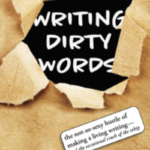“Write for yourself, edit for your audience.”
I read the above quote this week, and thought, ‘Yeah, I guess some of this is true.’ The first part is something I have always wholeheartedly believed: Write for yourself. The second half, though: edit for your audience, is where things get a little trickier.
I have a buddy, a professional actor who is fond of saying about plays (but it applies to all forms of artistic expression posted and considered for an audience), the ‘thing could always be better shorter’ (definitely, not what she said!) In this regard, then, the editing for your audience concept is perfectly understandable, but only if and when you are considering presenting what you do to an audience.
This is no small point. There is plenty we create and do that we know when we create and do it, we have no intention of anyone ever seeing/reading/hearing it. And even when you do know an audience might be at the receiving end, especially with something you present live, like a play, you need to consider the very real phenomena of the audience hive mind. I am always amazed when seeing a one-act play of mine performed over multiple nights how the laughs or tears come in different places with each performance, how an audience’s reactions—and how they often react together—differ from show to show.
So, editing, something I am always championing writers to do, while a good idea, can leave you chasing your tail if you are trying to edit to fit the likes of every audience member or even just one kind of audience.
This is also true if you are editing to catch one kind of readership, a sure fool’s errand, as in, how do you know who is going to come to, read and enjoy your opus and why would you want to alienate one group over another by making your writing too exclusive? Let the genre and form find its readership all on its own.
Sure, there are rules to follow here. Let’s use my previously mentioned playwriting as an example. When I submit my one-acts, the only kind of theatre writing I presently do, there are often time restrictions set by the producers or the theatre putting on a show. If my play does not come under a specific number of pages/time (the formula roughly is that for every page of a play, a minute of time is expended), I need to edit it to meet the time requirement or pick another play to submit. And many a publication will set a specific word count range they will only consider for the pieces they might run. And of course, if you are submitting to Asimov’s Science Fiction Magazine, I’d advise making sure the story is kinda science-fiction-y.
I get all of this. It makes perfect sense.
But this kind of editing, for a specific time constraint or magazine word count or even niche, is not the same thing as editing generally because you are trying to imagine an audience ‘out there.’ I believe that the quote I began this diatribe with means that a writer should write for him or herself first (they are the initial ‘audience’) then edit for broader readership, understanding, a more general palatable (possibly better commercial) acceptance.
But this last consideration is where things can get really dangerous.
I know you have heard the stories of the ubiquitous movie preview where producers, actors, director all sit on pins and needles waiting to collect, review and consider an audiences’ review cards. How often have you heard the story of how a movie might not have played well in one theater but manages a gangbuster preview in another? Making changes considering a committee, mass of people—the audience—means you will edit to try and catch the interest of all, working towards the middle-ground common denominator.
Do you want this really?
I can assure you, if you are trying to surf the latest wave, trying to interest the masses in what you feel the masses are currently into, or looking to tickle every single person in the same way, you won’t ever be able to accomplish a mass appreciation, and you certainly won’t be writing for yourself anymore.
































